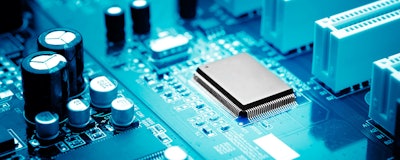
 Duane Benson
Duane BensonIf I ask for a definition of the difference between prototyping and rapid prototyping, would the correct response be "it's faster — duh"?
I would probably hear that a few times, but that really isn't the correct assessment. Yes, it is faster — duh — but it's faster because it's done differently. That is the key: different. With mechanical injection molded plastic parts, before the days of rapid prototyping, you would send the design off for tooling.
At month two of the three month process, you would ask for a few parts to be shot out for proto's. The mold wouldn't be polished and a few things likely wouldn't fit quite right, but it would give you close enough.
You could also hand assemble some proto's with sheet plastic and glue, but that won't tell you much about what is in the CAD system. It also becomes pretty much impossible with smaller and more complex designs.
With rapid prototyping, you use a completely different process. It's milled out on a CNC machine, or built up with a 3D printing stereolithography system. It is a completely different path that delivers an almost identical result. It is more expensive per part then a hard-tooled injection molded piece, but it doesn't take a quarter to three quarter million dollars for the tool to be built up first.
That is the thing about rapid electronic prototyping. It gives you a near identical result, but through a completely different process. Our machines, our programming system, our patented loader modifications are all set up to do that — give a near identical result to a production line assembled board, but without the setup costs associated with a volume line and without the variabilities and difficulties of hand assembly.
Each individual board may cost more, but there aren't the associated start-up costs. In some cases, it will even cost less than the hourly wages that would be paid to a technician hand soldering it. Of course, as with mechanical prototyping, with the new smaller and more complex parts, it may not even be possible to hand build.
Duane Benson is the Chief Technology Champion at Screaming Circuits.






















